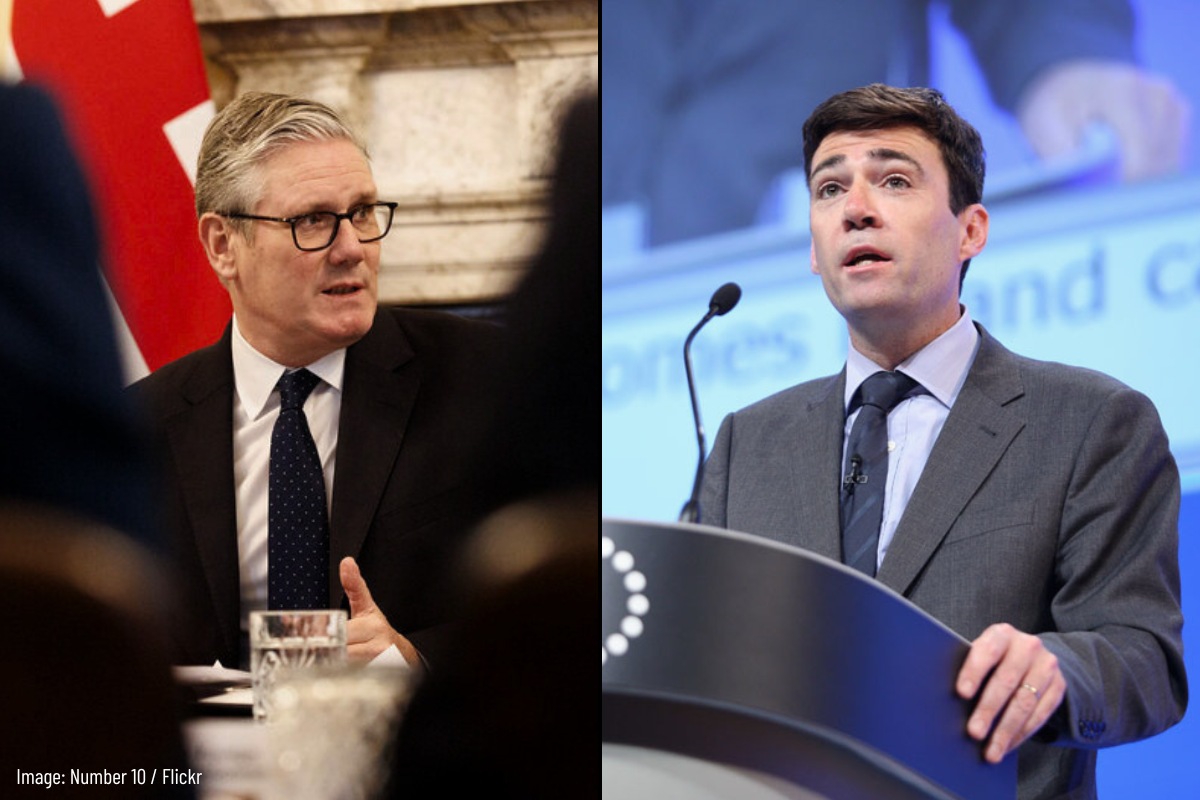With the general election campaign almost at the official
half way spot and all the polls pointing to a tight campaign, something odd has
happened. A sense of boredom has crept in to what should have been an exciting
four weeks of political cut and thrust. Only the recent jump in the Lib Dems
position in the opinion polls has provided any points of interest.
Newspaper editors have jumped on the Iceland volcano crisis
as providing a welcome diversion from the election which has now been pushed
well into the inside pages. The television news programmes have also started
cutting back the time they allocate to the campaign. Why is this?
Well there is a limit to the number of times you can see the
same set of suits wandering around, shaking hands and saying nothing. The
problem for them is that the message they have is not one which people want to
hear. All three main party leaders have been virtually singing from the same
hymn sheet with slight changes in emphasis. The Tories have tried to avoid
spelling out the severity of the cuts they will implement should they win.
Likewise so have the Labour leadership. Both Cameron and Brown have gone out of
their way to promise very little so as not to raise expectations – in that they
have succeeded. The general mood of the electorate is that no one is promising
anything other than unspecified cuts in order to bail out the bankers.
Even the leaders debate turned into an anti-climax so far as
the promised big punch up between Brown and Cameron was concerned, although much
attention has been given to the performance of the Lib Dem leader Clegg. This
assessment of Clegg is based on the fact that a) he remembered the questioners’
names b) he made a few actual promises (not a problem since they will not be
winning the election) and c) he reminded people that he was not from Labour or
the Tories. It is this final fact which has served to shake things up a bit
with the Lib Dems enjoying an unexpected surge in the polls over the last week.
The irony is that, under Clegg’s leadership, the Lib Dems have been
repositioning themselves nearer to the Tories rather than adopting the “Left of
New Labour” approach of recent campaigns.
 Now we should be clear here. The Lib
Now we should be clear here. The Lib
Dems are a capitalist party, committed to the defence of big business. At local
government level, Lib Dem controlled councils have been just as vicious as Tory
ones in carrying out cuts in public services. They have made much of the fact
that they predicted the economic crisis – as did the Marxists by the way – and
very little of the fact that their “solution” is pretty much the same as Labour
and the Tories i.e. cuts. Clegg is being promoted by some newspapers as being a
means of taking votes off Labour in a similar way to what happened with the
SDP/Liberal alliance in 1983. The only fear that the Tories have is that it
could be that the Lib Dems take votes off them as well and scupper plans for
the Tories to grab seats of the Lib Dems, which they may well need to do in
order to get a good majority. The opinion polls have tended to confirm this
trend prompting Lord Tebbit to demand that the Tories take action now to avoid
a big problem on May 6th. So they are looking to rubbish Clegg and
return to the situation of a few weeks ago. It is quite possible that the media
will announce that Clegg had a poor performance in the later debates and that
will be that. However this is still to be determined.
However the fact that so many people though that Clegg did
best in the first debate does not say much for Cameron or Brown. Under Blair
and Brown, the Labour government has spent the last three terms of office
trying to be more like the Tories. Now Cameron has been trying to win the
election by being more like the pre-Iraq war image of Blair. He has even tried
to woo Guardian readers with his new “modern” approach.
The reality is that we are dealing with the same old Tories.
Once in office, should they win on May 6th, they will set about a
series of vicious Thatcherite attacks on the working class. They will want to
slash public spending without delay and in doing so take a measure of revenge
for the humiliation of 1997. It is their way.
The decline in the standing of the Tories in the polls
started last autumn when they decided to give a hint about the severity of the
cuts they would implement. Rather than being rewarded for their truthfulness,
people started having second thoughts about voting for them. This should have
been the opportunity for Labour to seize their chance and provide a real
alternative to the Tory cuts. Sadly they have failed to do so. They are banking
instead on coming from behind to win by being the least worst option. This
could happen although the odds are still on a small Tory victory or a hung
parliament. Nether of these options will please big business who are looking
for a Tory government with a good majority, able to survive rebellions in the
House and push through the required measures (for them that is) over the next
few years. The surge in the Lib Dems position has made things even more
uncertain.
 The tragedy is that if Labour had decided to fight
The tragedy is that if Labour had decided to fight
this election with even a modicum of radical socialist measures then they would
now be well ahead. However the fact is that they are not and few would believe
them even if they chose to do so. Labour needs not only a change in policies
but also a change in leadership. We need people who will stand up for the
working class not the City of London. In calling on workers and youth to vote
Labour we are also making clear that the time has come to do more than just this.
We are calling on all those who want real change – not the phantom one being
promised by the three party leaders – to get involved in the struggle for
socialism. The organised Labour movement needs to mount a real campaign,
whatever the election result, to transform Labour, changing both leaderships
and programme, to ensure that our class receives the political representation
it deserves. Such a process must be based on the programme of socialism and
class struggle.






